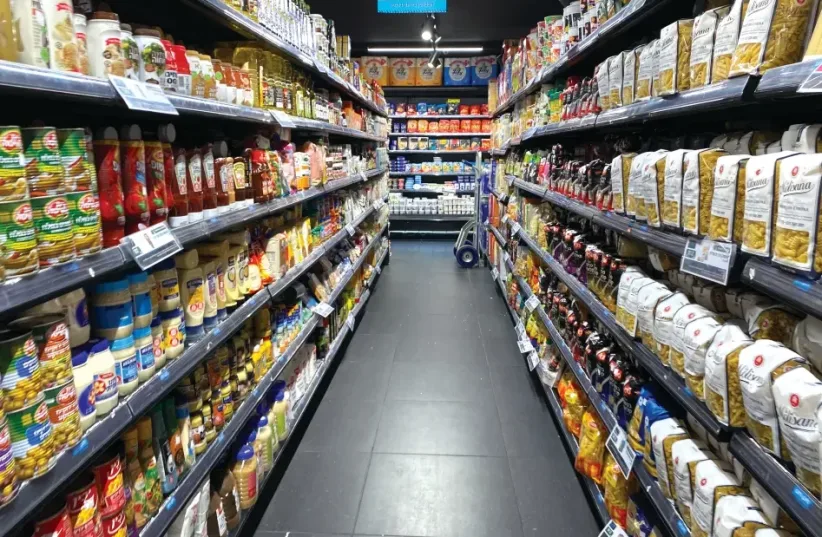ARTICLE AD BOX
In spite of challenges, now is a good time to remember that consumers still have the power to make choices that can show their objection to price hikes and encourage suppliers to avoid these.
By EVE YOUNG JANUARY 12, 2025 16:10 Shelves carts in a supermarket
(photo credit: Avshalom Shoshoni)
Shelves carts in a supermarket
(photo credit: Avshalom Shoshoni)
A consumer looking to purchase Dove facewash at the Super-Pharm in Hadar Mall might be surprised to find that just 500 meters away, a quick walk around the block, the exact same facewash is being sold at Lior Adika for around half the price.
While it's a little sobering to think that Super-Pharm is likely able to sell this product at this price point in spite of other options available to consumers, it's also an important reminder - consumers in Israel are not completely powerless.
A series of price increases from major Israeli food companies over the last year of the war, a VAT increase from 17 to 18%, increases in utility prices, and more cost-of-living hikes have left many in Israel feeling helpless in the face of these skyrocketing costs.
Israel's economy is characterized by a high degree of centralization, which contributes to the cost of living as it quashes competition, giving a few companies outsize power over prices. The food sector is a good example, with just a few major companies controlling a huge share of the market.
Just three suppliers control more than 85% of the sum of sales for 20 categories of food, a State Comptroller report from November of 2024 found.
The same report also found that the purchasing power of Israeli consumers is up to 300% lower than that of consumers in the US, UK, and France in terms of wages for products the comptroller checked.
Economic pressures for Israelis
The war has created economic pressures for Israelis - multiplying the amount of reserve duty done by Israelis, impacting interest rates and making debt more expensive, impacting taxes, and more.
The war has also captured public attention, quashing public backlash against corporations raising prices as Israelis are focused on hostages, fighting loved ones, and more, and don't have the capacity to object to price hikes or pressure elected officials to fight the rising cost of living with legislation and regulation.
Additionally, tax increases have created a smokescreen - enabling companies to raise prices by more than tax increases while consumers are expecting price increases and likely not calculating exactly how much the prices of products "should" have gone up. Advertisement
In spite of these challenges, now is a good time to remember that consumers still have the power to make choices that can show their objection to price hikes and encourage suppliers to avoid these.
Stay updated with the latest news!
Subscribe to The Jerusalem Post Newsletter
Companies don't have to raise prices even as taxes increase. Corporate responsibility programs don't need to begin and end with charity; they can include making conscious choices in their operations to help consumers.
Carrefour, for example, announced last week that it will absorb the VAT increase and not raise prices on 1,700 different products.
The chain stated that Carrefour "will absorb the additional costs resulting from the VAT increase on all Carrefour products, including food, pharmaceuticals, toiletries, cleaning items, and fresh products in the butcher's section and fishery."
Higher profits
Importers, retailers, and producers in the food sector have seen significantly higher profits during the Israel-Hamas war, according to a report by financial advisory firm Fair Value Group released last month. These profits mean that companies in the sector have the ability to absorb tax hikes and other costs.
It's a choice companies will likely not make, however, without pressure from consumers. If enough consumers show that price increases will impact sales, it will force companies to react and could curb rising prices.
This isn't always truly feasible for Israeli consumers, who are operating in such a concentrated economy, where so many choices are limited and competition does not always exist.
Consumers do have some power, though, and Israelis should keep this in mind as they make choices in this new, more expensive reality - prioritizing companies that absorb tax increases, that cut prices when production costs lower, or at the very least don't raise prices beyond tax hikes just because they can.
Liat Ron/Walla contributed to this report.

 5 hours ago
5
5 hours ago
5








 English (US) ·
English (US) ·